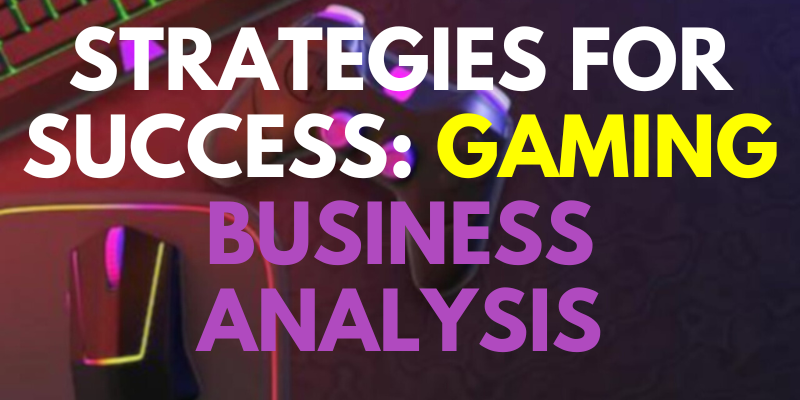The gaming industry has experienced exponential growth over the past few decades, transforming from a niche hobby into a multi-billion-dollar global phenomenon. This rapid expansion has not gone unnoticed by academic institutions, including MBA Colleges In Chennai, which recognize the importance of understanding and participating in this dynamic sector. As the industry expands, it becomes increasingly essential for businesses within the gaming ecosystem to conduct thorough and insightful business analysis. This blog will delve into business analysis in the gaming industry by exploring case studies highlighting the significance of data-driven decision-making, market trends, and innovation.
Fortnite – The Power of In-Game Economies
Fortnite, developed by Epic Games, is a prime example of a game that has harnessed the potential of in-game economies. The Battle Royale mode, introduced in 2017, quickly became a global sensation. One of the critical business analysis takeaways from Fortnite is its successful implementation of the free-to-play model coupled with in-game purchases. By analyzing player behaviour, Epic Games optimized their microtransactions and continually introduced new cosmetic items, keeping players engaged and monetizing their experience effectively.
Steam – Navigating a Crowded Marketplace
Valve Corporation’s digital distribution platform, Steam, serves as a vital case study in managing competition in the gaming industry. With thousands of games available, Steam’s success is attributed to its data-driven approach to user preferences. Steam employs algorithms that recommend games tailored to individual users, enhancing the overall user experience. This analysis-driven strategy has helped Steam maintain its position as the dominant digital distribution platform in the gaming market.
Pokémon GO – Leveraging Augmented Reality (AR)
Niantic’s Pokémon GO is a prime example of how augmented reality can revolutionize the gaming industry. By integrating AR technology and real-world location data, Pokémon GO created a unique gaming experience that captivated millions of players worldwide. Business analysis was crucial in identifying player behaviour patterns, enabling Niantic to refine gameplay, launch new features, and forge partnerships with local businesses for location-based events.
Cyberpunk 2077 – The Consequences of Hype and Overpromising
The release of Cyberpunk 2077 by CD Projekt Red offers a cautionary tale in the gaming industry. Despite enormous anticipation, the game faced severe backlash upon launch due to technical issues and unmet expectations. This case study underscores the importance of managing customer expectations, conducting realistic business analysis, and ensuring a polished product before release.
Conclusion
In the dynamic and ever-evolving gaming industry, business analysis is a critical tool for success. The case studies of Fortnite, Steam, Pokémon GO, and Cyberpunk 2077 demonstrate the diverse challenges and opportunities that businesses encounter. Companies can thrive in this competitive landscape through data-driven decision-making, innovative approaches, and a deep understanding of player behavior. As the gaming industry evolves, the lessons learned from these case studies will remain invaluable for businesses striving to make their mark in this dynamic and exciting sector. By embracing business analysis, gaming companies can survive and thrive in the highly competitive gaming industry. These insights are not only valuable for gaming professionals but also for individuals pursuing an MBA In Digital Marketing, as they can apply similar strategies to navigate the ever-changing digital landscape.

